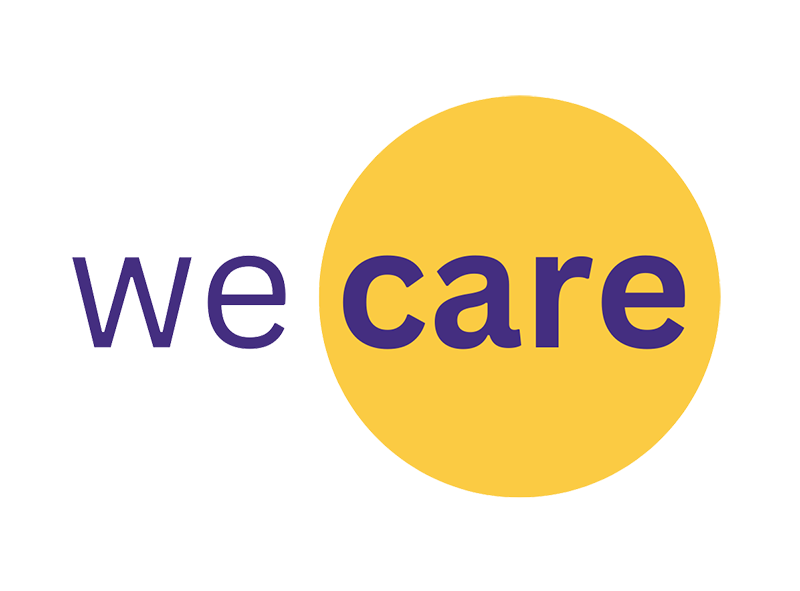
WECARE.NZ CAMPAIGN STORY
Allanah Story
Supporting disabled family carers
Allanah is one of the 40+% of New Zealand family carers who have a disability themselves while caring for other family members who are unwell or have disabilities. While the role of family caring is largely invisible and unsung in our country, this is especially so for carers who juggle their own support needs alongside those of others whose needs are often greater.
Allanah is estranged from her whānau and her autism and ADHD went undiagnosed in childhood. She struggled to develop friendships, and as an adult needs routines and has textural preferences; simple things like touching chalk, pumice or sand under her nails is distressing and physically nauseating.
Like many autistic people, she is also sensory avoidant. Too much touch sound or smell is overwhelming.
“I need lots of quiet input-free time to recharge myself mentally to avoid having meltdowns. This is important not just from an autistic perspective but for my health.”
Allanah has fibromyalgia. Some days it is difficult to get out of bed, or something as simple as the water pressure when showering can be painful enough to bring her to tears. Like many people who have fibromyalgia, each day Allanah has to choose between tasks most New Zealanders don’t have to think twice about.
“Do I cook dinner or shower today? Do we attend a playgroup or do the grocery shopping? Will I have enough energy to take the bin out if I do the laundry?”
“We” includes Marcus, Allanah’s two year old son, who is also autistic and has some developmental delays. He uses no words but communicates with pinches, pulling, and high-pitched noises.
“Marcus has so much energy – five hours a day would be a wonderful sleep for him,” Allanah says. “He is a sensory seeker who needs multimodal inputs like loud tv, banging pots and pans, running, jumping, crashing into the wall or floor, and constant touch and texture exploration.”
“These things are essential for his wellbeing and as a parent it’s my job to ensure those needs are met.”
Doing so can mean that Allanah has to ignore her own, quite different needs. She has adapted by wearing noise-cancelling headphones or choosing texture play that doesn’t cause her discomfort. Other issues can be more challenging.
“No two year old will stay in bed all day just because Mum isn’t feeling well.”
“Unfortunately because of our limited communication, lack of safe independent play options, and his intense physical input, it’s essential to help him meet his needs while preventing him from physically harming himself or eloping. It means I can’t always get the rest I need.”
Allanah and Marcus live in an area with no fenced outdoor play options.
“I’d love the Government and Councils to recognise disability safety needs in play areas. Transparency about what support is available would make things a lot easier, too.”
She has struggled to understand New Zealand’s needs assessment and service coordination process – the gateway to all publicly funded disability supports for her and for Marcus. Allanah says the rules are unclear, and finding out what help is available has caused distress instead of providing the support she was expecting.
Although Allanah and Marcus have no ‘natural support’ – friends and family who might help to support Marcus so Allanah can have breaks, manage her own health needs, and share his care – she has been given a modest amount of Carer Support Subsidy on the basis that as the parent of a young child, she should be providing parental care anyway.
Carer Support is the only respite help most family carers like Allanah get.
This discriminatory practice is one Carers NZ and the Carers Alliance of 50+ national not for profits is challenging with the Government.
Parents like Allanah, even when their children are very young, grapple with providing medical and behavioural supports 24/7; they are often sleep deprived as they give assistance night or day.
We believe carers like Allanah, especially those living with health conditions or disabilities themselves, need significantly more assistance, including higher allocations of Carer Support.
The Government’s renewed focus on ‘system transformation, Enabling Good Lives, and EGL principles such as ‘starting early’, are important directions for young disabled New Zealanders like Marcus, and disabled parents and whānau in caring roles like Allanah.
“Early intervention in line with the promised EGL principles would help to build support routines and make it easier to access equipment and advice for both disabled people and their families,” she says. “It would also be helpful to have access to private therapy for those of us in areas of the country where health supports are understaffed.”
